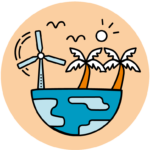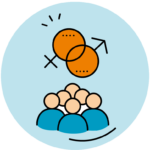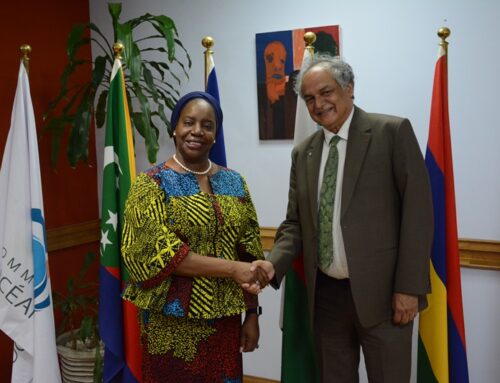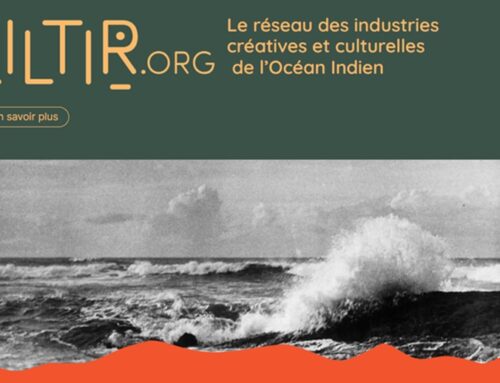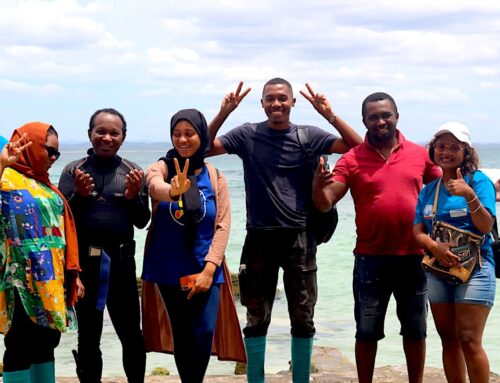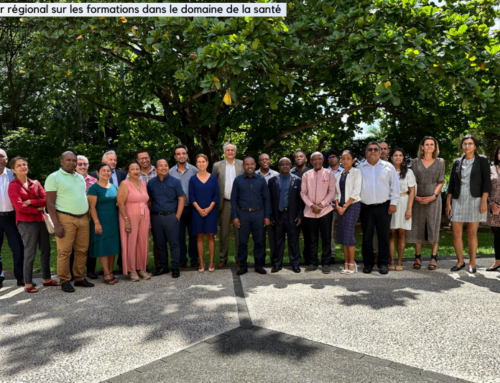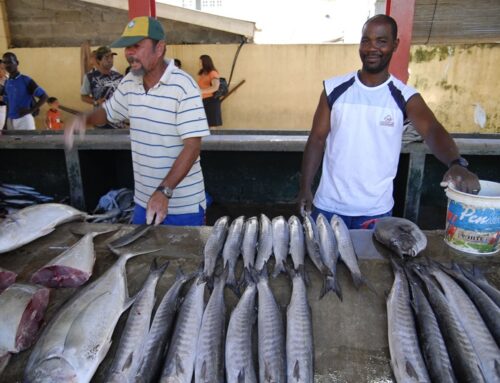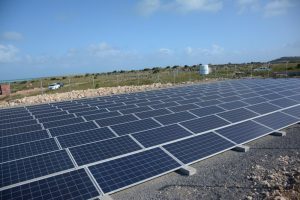 Funded by the European Union and implemented by the Indian Ocean Commission, the IOC-ENERGIES programme has identified pilot sites in each beneficiary island for the setting up of demonstration projects. The objective is to give visibility to the concrete actions being conducted in the programme’s pilot islands. In each of these sites, namely Sainte-Marie in Madagascar, Mohéli in the Comoros, La Digue in the Seychelles and Rodrigues for Mauritius, the IOC-ENERGIES programme has established operational priorities and is implementing concrete actions. In Sainte-Marie, the projects are being brought to fruition and the head of the IOC-ENERGIES programme visited the island between 22 and 26 February to assist the local stakeholders and speed up implementation.
Funded by the European Union and implemented by the Indian Ocean Commission, the IOC-ENERGIES programme has identified pilot sites in each beneficiary island for the setting up of demonstration projects. The objective is to give visibility to the concrete actions being conducted in the programme’s pilot islands. In each of these sites, namely Sainte-Marie in Madagascar, Mohéli in the Comoros, La Digue in the Seychelles and Rodrigues for Mauritius, the IOC-ENERGIES programme has established operational priorities and is implementing concrete actions. In Sainte-Marie, the projects are being brought to fruition and the head of the IOC-ENERGIES programme visited the island between 22 and 26 February to assist the local stakeholders and speed up implementation.
The project head was accompanied during this mission by the National Focal Point in Madagascar and an engineer from the Agency for Rural Electrification (ADER). They discussed the future installation of the demonstration project with the communities and local authorities: a solar multiuse kiosk on Ile aux Nattes which is not connected to the national electricity network. In addition to acting as a local electricity terminal, the kiosk will fulfil several other purposes thanks to solar energy it will generate. Firstly, it will allow fishermen to keep their catches fresh. Indeed, in the absence of cold storage facilities, the catch of the day must be dried, eaten or sold rapidly. Thanks to the solar kiosk, which will be equipped with a refrigerator, the fishermen will be able to conserve their fish before selling it at the right time.
In addition, the kiosk will allow for the setting up of a cybercafé which will give the community access to the internet as well as office services such as a photocopying. The cybercafé will also be equipped with a widescreen TV and DVD player.
This mission was also the opportunity to meet the local authorities whom are always involved in the IOC-ENERGIES programme’s activities, and to apprise them of the status of the study regarding the potential recovery of energy based on the carbonisation of an invasive species, the Grevillea banskii, which will operational shortly. This study will ascertain whether this species can be used for energy recovery. On a positive note, the creation of a cooking charcoal sector will be seriously envisaged, which should encourage the use of eco-friendly cooker and limit deforestation.








